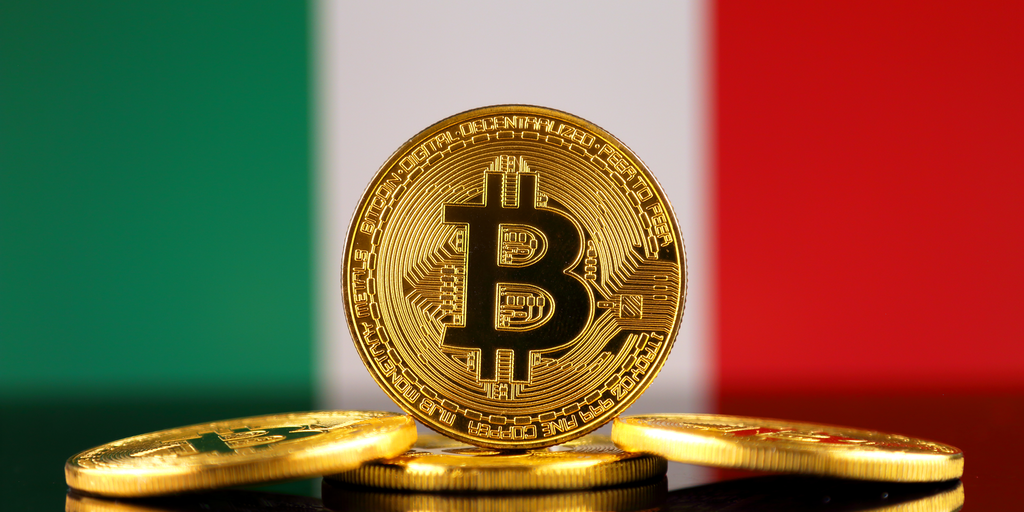
On January 13, Intesa Sanpaolo purchased 11 BTC for about €1 million, marking the first direct cryptocurrency transaction by an Italian banking institution, according to Wired Italia.
Leaked internal correspondence among staff revealed the country’s largest bank had executed a Bitcoin buy.
Based on journalist findings, the purchase took place when Bitcoin traded between €89,000 and €91,000, prior to the price dipping to a low of €88,496.
A bank spokesperson confirmed the approximate cost of the crypto acquisition but declined to offer more details.
Bitcoin on Traditional Markets
Meanwhile, Semler Scientific, a medtech firm, acquired an additional 237 BTC valued at $23.3 million. Per its press release, the purchases occurred between December 10, 2024, and January 10, 2025, financed by share sales and operating cash flow. The average price was $98,267 per coin.
Listed on Nasdaq, the company’s total crypto reserves now stand at 2,321 BTC. Overall, it has spent $191.9 million—an average of $82,687 per coin.
On January 13, Hong Kong-based construction firm Ming Shing disclosed the purchase of 500 BTC. The deal was executed on January 9 by Lead Benefit, a BVI-registered subsidiary formed in December. The company spent around $47 million at an average price of $94,375 per coin.
“We are confident that these investments will not only drive our growth but also provide significant value to our shareholders,” said Ming Shing director Wenzhen Li.
On January 10, American spirits producer Heritage Distilling announced a Bitcoin standard. The company will allow online purchases in Bitcoin and begin acquiring the crypto as a strategic reserve.
The decision was approved by its board of directors. Heritage is establishing internal guidelines to implement this policy.

“Heritage has always been an innovator, and we are again leading in the craft spirits space by preparing to accept Bitcoin as payment for online purchases, as well as buy and hold the cryptocurrency as an asset,” commented CEO Justin Stiefel.
In Q4 2024, AI-powered education firm Genius Group boosted its crypto reserves to 319.4 BTC. The group invested roughly $30 million (average price $93,919) over a six-week period after announcing its “Bitcoin-first” plan on November 12. Under the policy, it pledges to store 90% of current and future reserves in the cryptocurrency. Its initial target is $120 million.
Thumzup Media, a publicly traded media company, revealed in early January that it had purchased around 9.8 BTC at $102,220 per coin for a total of about $1 million.
ICYMI: Thumzup Buys $1 Million in Bitcoin to Diversify Liquid Assets.
— Thumzup Media Corporation (@thumz_up) January 8, 2025
✔️ Management is requesting board approval to hold up to 90% of liquid assets in #bitcoin
✔️ Coinbase’s prime platform serves as custodian for Thumzup’s #BTC
✔️ Thumzup expected to be added to The #HODL Top 70… pic.twitter.com/jg5TvibXR9
It too will hold 90% of its reserves in Bitcoin and soon allow freelancers to receive payment in the cryptocurrency.
Trend of 2025?
According to Bitcoin Treasures, as of now, 19 private and 77 public companies hold Bitcoin.
Among corporations, MicroStrategy maintains a dominant lead with 450,000 BTC (~$43.4 billion), having begun accumulating in August 2020.

On the national level, only El Salvador and Bhutan have official Bitcoin policies so far. Analysts at Fidelity predict more countries will join them in 2025.
U.S. President-elect Donald Trump proposed forming a national Bitcoin reserve in his campaign. The community even suggested a mechanism to fund it without new legislation from Congress.
Russian State Duma and the European Parliament also voiced support for building Bitcoin reserves. In Germany, ex-Finance Minister Christian Lindner had advocated for the idea as well.
Not all governments share that enthusiasm; for instance, Japan’s officials remain skeptical, citing the volatility of digital assets.
Still, many experts foresee 2025 bringing an expansion of both national and corporate adoption of Bitcoin. Matthew Sigel of VanEck believes the U.S. could ultimately create a strategic Bitcoin fund, and Lior Shimron, a Forbes contributor and NovaBlock Capital partner, thinks at least one of the world’s largest economies will move in that direction.
Context
- Several experts consulted by Cryptol have noted a growing push for state and corporate Bitcoin strategies.








 Cryptol – your source for the latest news on cryptocurrencies, information technology, and decentralized solutions. Stay informed about the latest trends in the digital world.
Cryptol – your source for the latest news on cryptocurrencies, information technology, and decentralized solutions. Stay informed about the latest trends in the digital world.